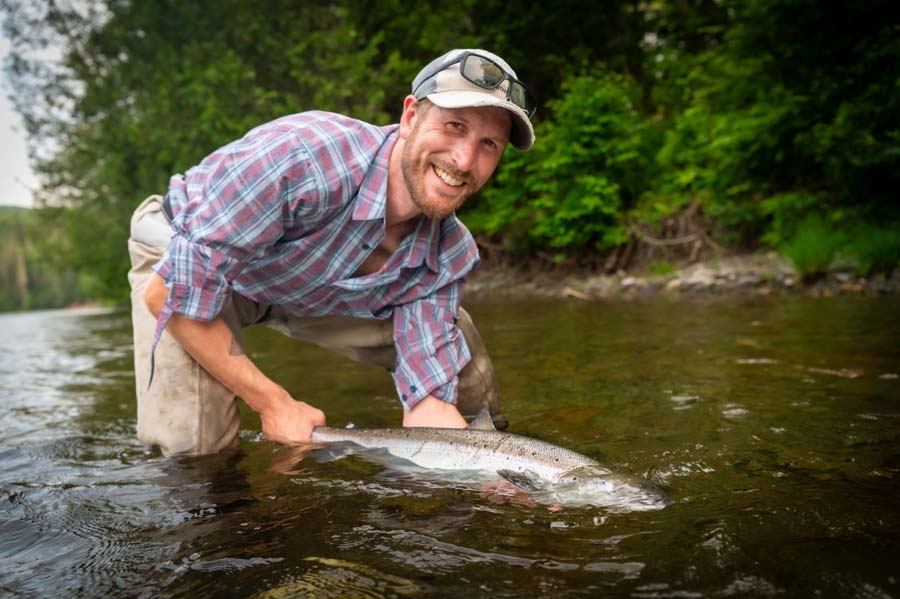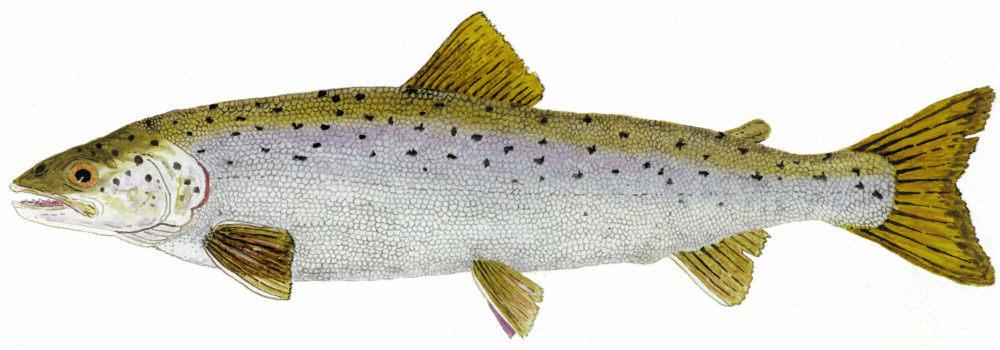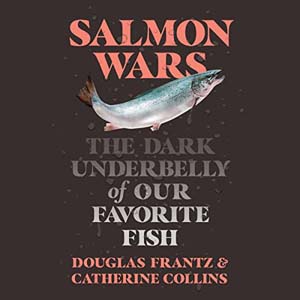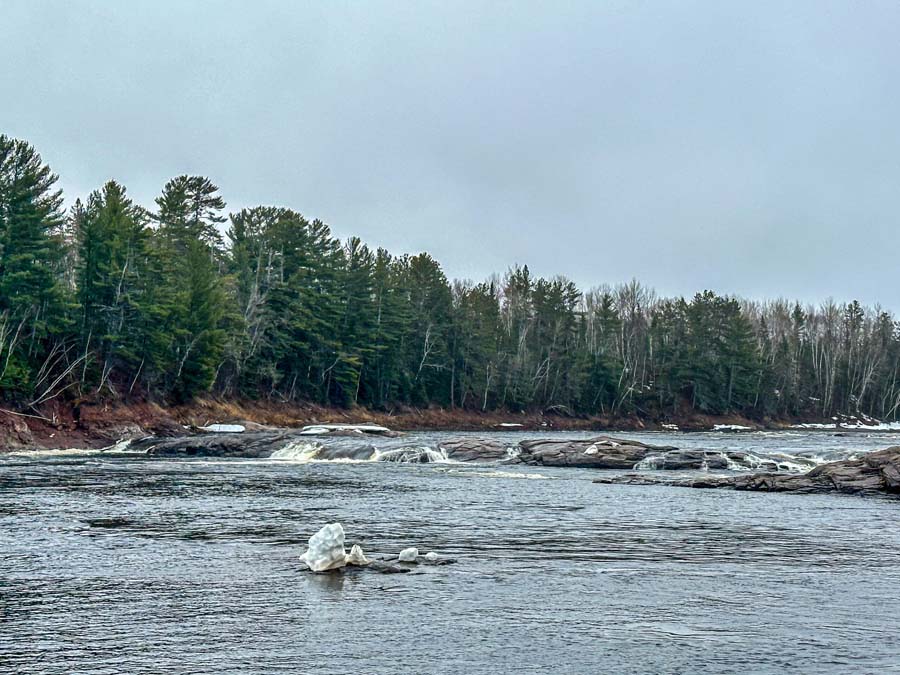
Atlantic Salmon Federation, Rivernotes editor, Peter Dore releases a salmon last summer. This year’s run will be in our rivers before long. Photo: Nick Hawkins.
Oceans and waterways are warming quickly due to the climate crisis, making it harder for cold-water fish to survive

Skip Clement
By Skip Clement
The Atlantic salmon, a keystone species that has survived for millennia, is now facing its biggest challenge yet. The world’s oceans and waterways are warming due to the climate crisis, making cold water harder to find – a significant issue for this cold-water fish.
Pollution, dams, overfishing, and habitat destruction have already diminished the number of Atlantic salmon, and climate change poses a potent new threat to wild salmon and those inside industrial pens.
Snow melts
The danger extends beyond the marine environment. With snow melts dwindling, droughts increasing, and less cold water remaining in streams and rivers in summer. It is harder for salmon to breathe and swim.
The National Oceanic and Atmospheric Administration has warned that climate change represents a potential extinction-level danger to some species of wild salmon. Farmed salmon, which comprise 90% of the Atlantic salmon eaten in North America, face similar climate-related pressures. The industry must change to prevent further damage to the environment and the fish themselves.

Adult Atlantic Salmon by Thom Glace, award winning watercolorist, dedicated fly fisher, and conservationist.
Warming creates issues
The world’s fastest-growing food sector, open-net pen salmon farming, produces 96% of the world’s farmed salmon. As the seas warm and available locations become exploited, the industry needs more viable sites for new farms, creating pressures to locate farms in less suitable environments and increasing stocking densities, further exacerbating environmental pressures.
NOTE: Edited and excerpts from several National Oceanic and Atmospheric Administration [NOAA] postings, and these contributing organizations: Atlantic Salmon Federation ASF, and 360 Yale EDU.

‘In our recently published book, Salmon Wars: The Dark Underbelly of Our Favorite Fish, we spent two years examining the practices of the $20-billion global salmon farming industry. We interviewed scientists, physicians, environmentalists, and people in the aquaculture business, and climate change emerged as one of the most critical environmental and fish welfare challenges to salmon farmers, raising doubts about the industry’s future on the warming oceans. It’s time for us to act – for the sake of the Atlantic salmon and the future of our planet.’ –— Collins/Frantz
Salmon Wars: The Dark Underbelly of Our Favorite Fish. In Salmon Wars, investigative journalists Douglas Frantz and Catherine Collins bring listeners to massive ocean feedlots where millions of salmon are crammed into parasite-plagued cages and fed a chemical-laced diet. The authors reveal the conditions inside hatcheries, where young salmon are treated like garbage, and at the farms that threaten our fragile coasts — ©2022 Catherine Collins and Douglas Frantz / Macmillan Audio.
NOTE: Feature mage ID – “The Pumphouse,” the future site of the Nepisiguit’s first smolt. Photo: Serge Collin.
Best Labrador Atlantic salmon fly fishing video. It’s reality . . .


